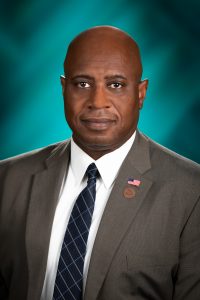Abortion: The overlooked tragedy for black Americans
Guest Opinion//February 25, 2020//
During February, which is Black History Month, it is a good time to look upon the triumphs and tragedies in African American history. Movies like Harriet tell of heroes of the Underground Railroad and the struggle against slavery. It is good to honor those stories. There is, however, one tragedy of the African American community that is often overlooked: the tragedy of legalized abortion.
Abortion impacts African Americans at a higher rate than any other population group. In 2011, the Centers for Disease Control and Prevention released an Abortion Surveillance Report. According to that report, black women make up 14 percent of the childbearing population. Yet, 36 percent of all abortions were obtained by black women. At a ratio of 474 abortions per 1,000 live births, black women have the highest ratio of any group in the country.

When you use those percentages, it indicates that of the over 44 million abortions since the 1973 Roe vs Wade Supreme Court ruling, 19 million black babies were aborted. African Americans are just under 13 percent of United States population.
White women are five times less likely to have an abortion than black women. Perhaps it is a matter of availability. A study by Protecting Black Lives, in 2012, found that 79 percent of Planned Parenthood’s surgical abortion facilities are located within walking distance of minority communities.
In the past, we criticized the tobacco industry for targeting young people with their advertising. Recently, the nicotine vape industry has been criticized for similar practices. The prevalence of abortion providers in African American and Hispanic neighborhoods indicates the abortion industry is targeting too. It smacks of the eugenics-linked past of Planned Parenthood founder Margaret Sanger and her views of contraception and abortion as ways of diminishing the black population.
The impacts on our black communities are hard to fathom. According to the Guttmacher Institute, which generally supports abortion, in 2011 360,000 black babies were aborted. CDC statistics for 2011 show that 287,072 black deaths occurred from all other causes excluding abortion. By these numbers, abortion is the leading cause of death among blacks.
That same year, Dr. Kermit Gosnell, an abortionist in the Philadelphia area, was arrested. His arrest followed a raid on his clinic by the Drug Enforcement Administration. Agents were acting on suspicion that he had been over prescribing oxycodone, but once inside the clinic, they were shocked to find female patients writhing on tables, in a facility that was littered in feces from a flea-ridden cat that could roam free inside the premises. Dr. Gosnell was eventually charged with murder of a woman that had died from a botched abortion, and for several “live birth” abortions where he had killed babies born-alive. It is outrageous that it took a drug raid to finally bring the authorities to look at this house of horrors.
You would think such a horrific occurrence would be a big news story. When he went to trial, the press gallery was empty. Kermit Gosnell’s abortion mill was in a black community. The news media did not care.
A movie was released about the Gosnell trial in 2018. Despite being produced by known Hollywood actor Dean Cain (Clark Kent/Superman in the show Lois & Clark: The New Adventures of Superman), the Gosnell trial movie had a hard time finding theatres to show it.
It is undeniably good that we convey the positive stories of our community to our fellow countrymen. It is important that we pass on stories that empower us. However, it is harmful to all black Americans if we continue to let society look the other way when it comes to the devastation that political policies like abortion wreak on the black community.
Republican Walt Blackman is a member of the Arizona House of Representative representing Legislative District 6.


















